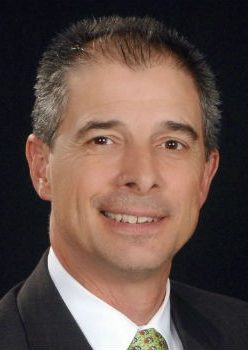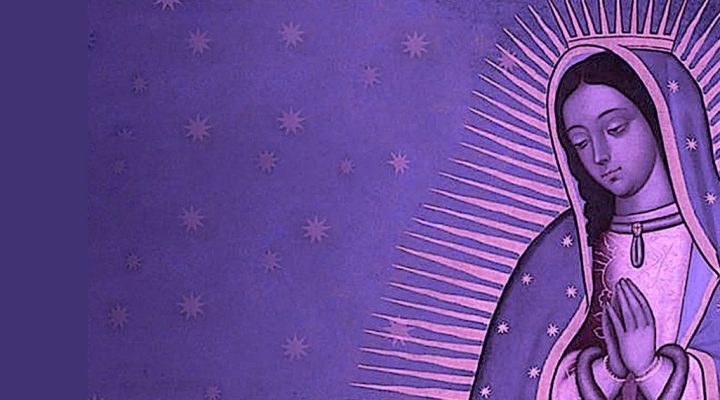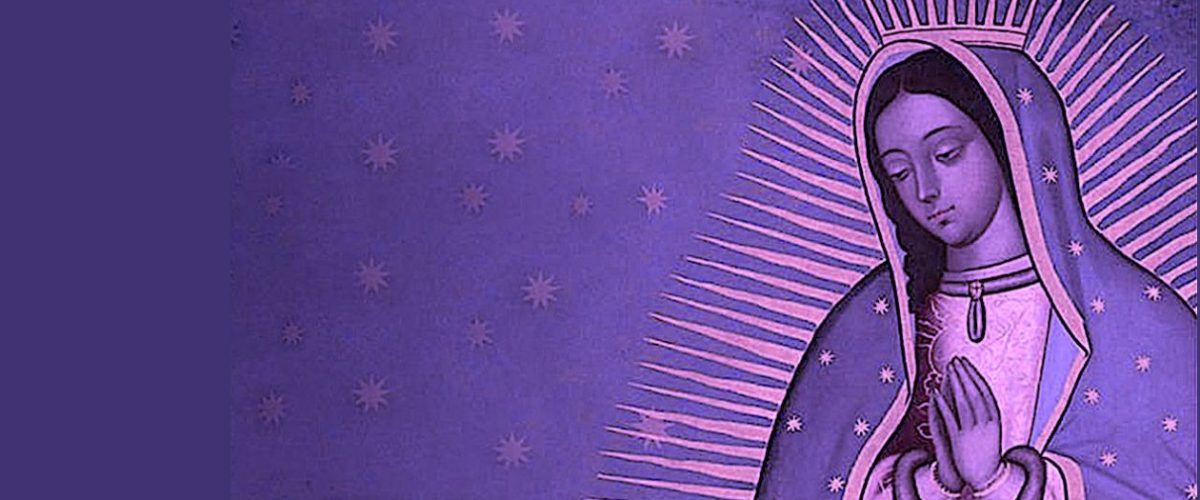I have appreciated the recent writing of Julia Goldie Day. She speaks wise words, especially for the voiceless, the oppressed, those marginalized by our society. I read with interest her recent post about the now-popular Christmas song “Mary, Did You Know?” I found myself seconding her motion, amening this being her least favorite Christmas song — but for very different theological reasons.
My version of the song would not sell nearly as many copies as the original. I wouldn’t make much on royalties, but no one ever said progressive theology was lucrative. And no one ever said good theology and a hermeneutic that can stand in the face of the valid critiques of 21st-century skepticism were easy, but someone in the church has got to try.

Russ Dean
Here’s my try. If I were to rewrite this sentimental favorite with my own theology, it would go something like this:
Mary didn’t know that her baby boy would one day walk on water.
Mary didn’t know that her baby boy would save our sons and daughters.
She didn’t know ’cause she only knew what other mothers do.
The future was as open for Mary as for you.
Mary didn’t know.
As I hear the popular song, there is a strong rhetorical hint that Mary did know. Even if Mary didn’t know, however, the narrator sings the song with a knowing certainty. The song’s haunting melody sings as if all the miracles told in the Gospel narratives were foregone conclusions, maybe preordained events. The theological affirmations, several centuries in the making, ring as if they could have been part of Mary’s spoken creed.
“If Mary knew, or could have known, then the future was not open.”
If Mary knew, or could have known, then the future was not open. This being the case, none of the characters in the divine drama had any actual freedom — not Mary, not Judas, not Jesus. And if none of these figures had freedom, neither do we.
Years ago, my friend and mentor, the late Bill Hull, asked in a sermon, “Could Mary have said no to the angel?” To the surprise of some in that Southern Baptist congregation, his answer was a resounding “yes.” His reasoning: “Because Mary was free.”
That freedom must cover the whole biblical narrative, or the story just sounds like superstition, a quaint fairy tale in a 21st century world. Mary was free. Jesus was free. Judas was free. We are free.
Mary could not have known. Known what!? (Until any event becomes a reality in time, there is nothing to know.)
The church must find better ways to speak to a postmodern, quantum-scientific world. If we continue to speak faith with an insistence on the necessity of a supernatural element that sounds more like the tribal superstitions of a pre-scientific age, more and more of our children will find new ways to express their spirituality. It will not be with the Bible. It will not be in the church.
All but the most conservative of scholars today acknowledge the events recorded in the Gospels represent anything but unadulterated facts of history. The Gospels are theological documents, not biographical stories, historical reports, factual, eyewitness accounts. Not one of the Gospel writers was an eyewitness to Jesus. The actual writers were not the named disciples but came years later, using the stories, the oral history told to them, as the basis for their writing. They were not concerned with reporting facts accurately, but with telling the compelling story of Jesus, for its inspirational, theological, spiritual impact.
Further, even if walking on water was accepted as a physical possibility in the first century, it is not today, and impugning anyone who questions that possibility as unfaithful, if not heretical, is not just insulting, it ignores the rich possibility of reading the text through a different lens. When you read the texts carefully, these first century writers hint to us that they did not intend their theological affirmations about Jesus to be read as literal reports of historical events.
Acknowledging what modern scholars know about the first century, and the scriptural texts that are still so important to the church, does not discredit Scripture. Sharing this “modern scholarship” (now more than 100 years old) with a skeptical world at least holds a possibility of making that Scripture accessible, with new meaning.
Our current worldview no longer accepts, uncritically, the physical impossibilities of the sun standing still in the sky, a virgin birth, a man walking on water. All but the most hardened atheists, however, might come to affirm that a man named Jesus changed the lives of those who encountered him — and so radically changed their lives that they came to say he could do no wrong, had supernatural powers, could even control the wind and the waves.
As people continue to walk away from faith, I am more convinced than ever that the way we tell the story must change. If we keep writing sermons and songs that reinforce, overtly and subtly, antiquated ideas, literal-only readings, affirmations that cannot be sustained in the face of modern science, nothing that needs to be told by the church will be heard.
Mary didn’t know, and the important truth she could not have experienced is how dramatically Jesus can change the way we see and hear and walk, how the way of Jesus could, in fact, change the whole world.
Mary didn’t know. We do.
Russ Dean serves as co-pastor of Park Road Baptist Church in Charlotte, N.C. He holds degrees from Furman University, Southern Baptist Theological Seminary and Beeson Divinity School. He and his wife, Amy, have been co-pastors of Park Road since 2000. They are parents of two sons. Russ is active in social justice ministries and interfaith dialogue. He is author of the new book Finding A New Way.
Related articles:
Mary, Our Mother (for Baptists): Mary, did you know? | Opinion by Julia Goldie Day
There’s something odd about this Mary, did you know?
Joseph, did you know? A reflection on fatherhood during Advent | Opinion by Darrell Hamilton


